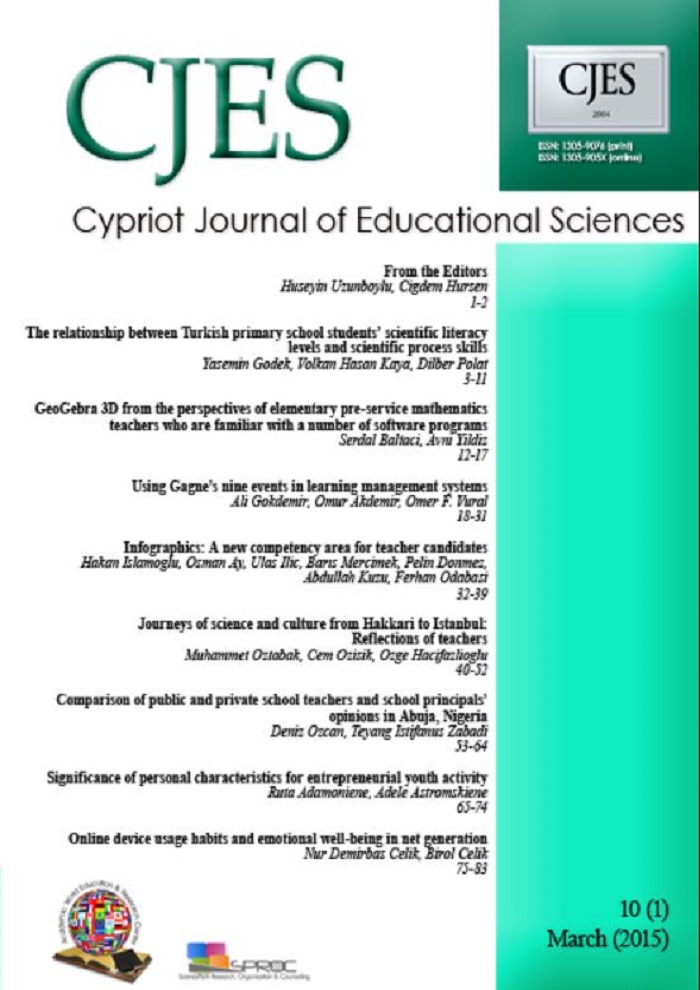Comparison of public and private school teachers and school principals opinions in Abuja, Nigeria
Comparison of public and private school teachers and school principals opinions in Abuja, Nigeria
Author(s): Deniz Özcan, Teyang Istifanus ZabadiSubject(s): Education, School education
Published by: Birlesik Dunya Yenilik Arastirma ve Yayincilik Merkezi
Keywords: curriculum; public schools; private schools; Nigerian educational system; opinions;
Summary/Abstract: This study aims to examine public and private school teachers’ opinions on different aspects of their professional associations and provisions and also asks principals about teachers’ conduct and their views on the Nigerian curriculum. To conduct this study, qualitative and quantitative research models were used to investigate differences between the two organizations. Quantitative data was collected by distributing questionnaires to 118 teachers in the Abuja Municipal Area Council (AMAC), Nigeria. To conduct the qualitative analysis, 15 teachers from two schools were selected (a total of 30 teachers) to answer 5 discussion questions concerning their views on the Nigerian educational system. The findings revealed that private school teachers are at an advantage when it comes to provision of resources and technology, professional development and to some degree salaries. Both public and private school teachers felt being a teacher did not bring them respect in their community. Government policy makers need to study private schools and how they operate to see how they can make changes to produce the revolutionary reform needed in education. 30 principals’ interviews revealed that public school teachers are not easily held accountable for misconduct due to the structure of leadership, while private school teachers are held accountable and any form of unprofessionalism easily leads to termination of employment.
Journal: Kıbrıslı Eğitim Bilimleri Dergisi
- Issue Year: 10/2015
- Issue No: 1
- Page Range: 53-64
- Page Count: 12
- Language: English

